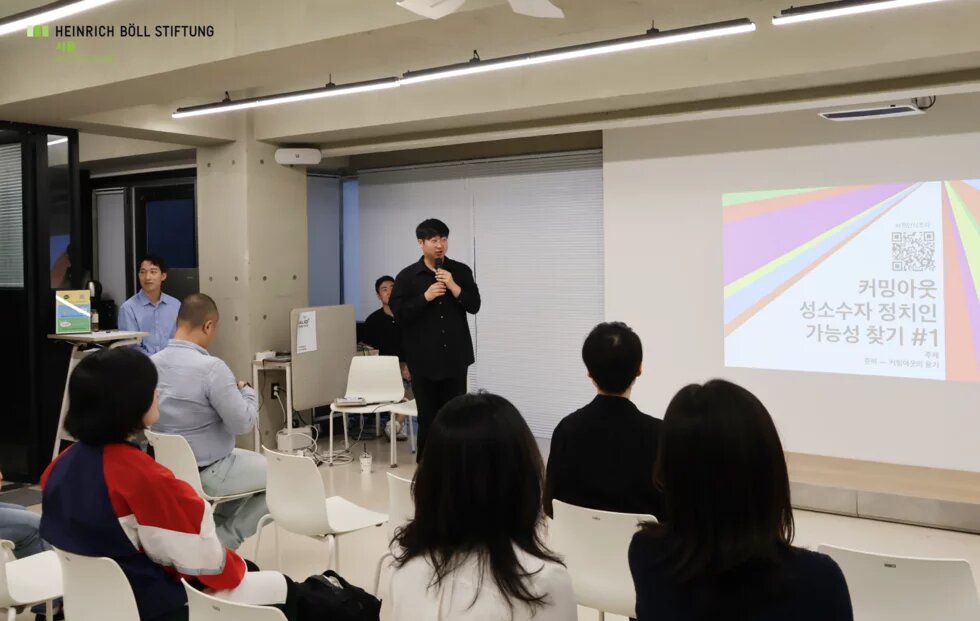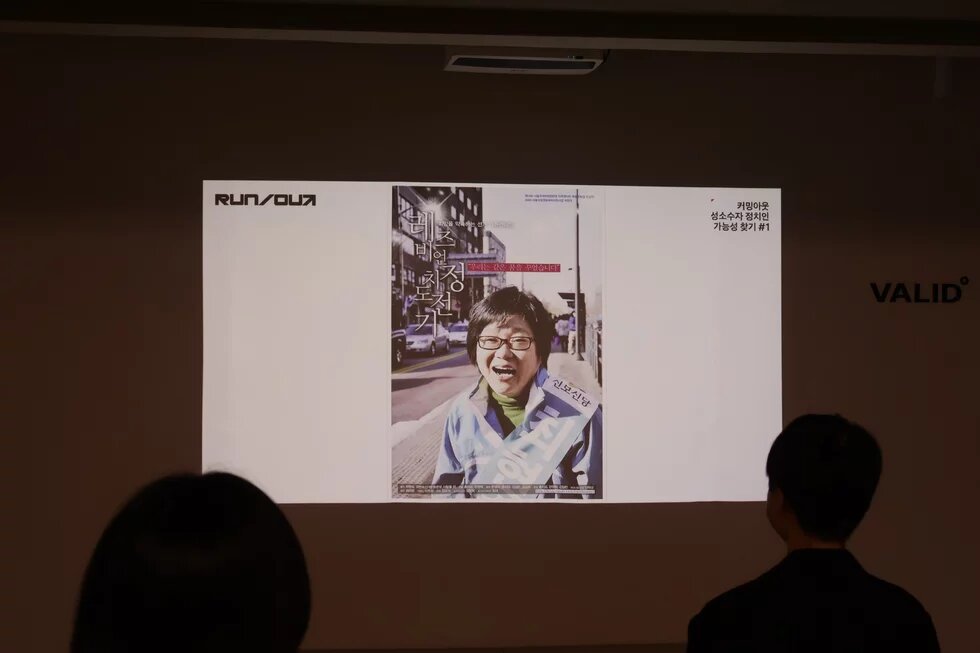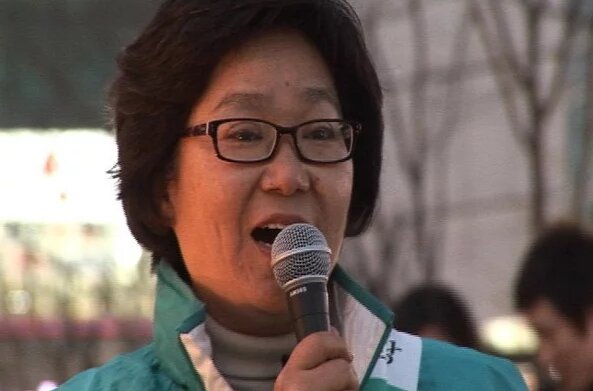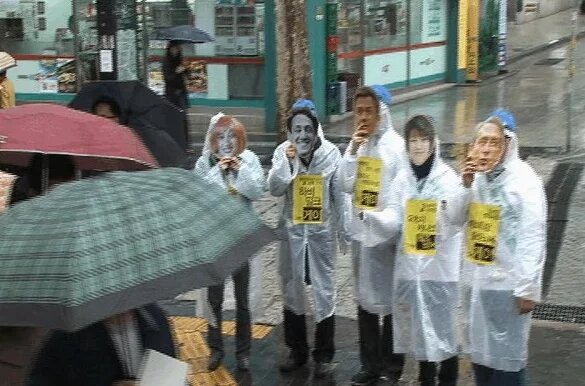
The Power of Solidarity through the Film 'The Time of Our Lives'

RUN/OUT represents a strategic shift in LGBTQ+ political organizing, systematically mapping queer political capacity across Korean society while cultivating political leadership from within the community. Rather than simply mobilizing voters, the project focuses on pipeline development—creating pathways for community members to become candidates themselves. Their inaugural event on August 30th, "Well, We're Going to the National Assembly!" exemplified this approach by connecting four parliamentary veterans with 40 participants for candid discussions about the realities of queer political engagement. This event demonstrated RUN/OUT's core strategy: reframing political participation from an aspirational goal to an actionable possibility. The September 20th follow-up, "Finding Possibilities for Out LGBTQ+ Politicians #1," built on this foundation by using the film 'The Time of Our Lives' as a case study to examine both the potential and practical challenges of LGBTQ+ candidacy.
"I Want to Be Friends" - The Radical Simplicity of Political Connection
Choi Hyun-sook's 2008 campaign as the New Progressive Party's #6 candidate for Jongno-gu marked a historic first: Korea's first openly LGBTQ+ political candidate. Examining her journey alongside the RUN/OUT project reveals significant insights about movement evolution and strategic development.
The film's most compelling element was Choi's repeated emphasis on genuine relationship-building—her desire to connect with people across different demographics who shared core values. This approach cuts to the fundamental nature of democratic politics: effective organizing begins not with ideological positioning but with authentic human connection. Her framework suggests that sustainable solidarity emerges from interpersonal bonds rather than abstract political alignment.
The Power of Collective Courage - Why Community Beats Going Solo
While Choi's individual bravery was remarkable, the film's analysis reveals that collective courage proved more transformative. Campaign staff and allies who risked public exposure by participating in rallies, alongside activists who simultaneously pursued domestic partnership legislation and constitutional challenges to discriminatory election laws, demonstrated how networked organizing amplifies individual agency into systemic pressure.
The campaign scenes showcasing their public advocacy for "community, love, minorities, marginalized people, working families, all living beings, and everything beautiful" illustrated the humanistic potential of political engagement. Choi's vision of politics as both engaging and participatory—creating spaces where citizens want to be involved—remains strategically relevant for contemporary organizing efforts.
Source: kmdb.or.kr
From Isolation to Networks - 17 Years of Progress and Paradox
Choi's 2008 campaign faced a fundamental structural challenge: the absence of institutional support systems for LGBTQ+ political candidates. Operating without established networks or organizational backing, she navigated social indifference rooted in limited visibility around LGBTQ+ issues and discrimination.
The contemporary political landscape presents a more complex dynamic. Progressive party divisions have largely resolved, with the Justice Party, Progressive Party, and Basic Income Party all actively promoting comprehensive anti-discrimination legislation and life partnership laws. However, this creates a strategic paradox: while progressive parties champion LGBTQ+ issues, their limited electoral influence means these positions lack meaningful political impact when overshadowed by major parties that remain largely indifferent to LGBTQ+ concerns.
This evolution offers crucial strategic lessons. The existence of sympathetic political parties proves insufficient without corresponding electoral power. Effective LGBTQ+ political influence requires not only supportive platforms but also the capacity to create pressure that major parties cannot ignore.
RUN/OUT's significance emerges precisely from this analysis. The project addresses systemically what Choi managed individually, developing organized networks and strategic coordination. However, success demands evolution beyond community building toward developing organized political influence capable of affecting electoral outcomes.
Source: kmdb.or.kr
Beyond Politics of Individuals - When Friendship Meets Structural Reality
The film's most authentic moments depicted genuine human connection—Choi and colleagues sharing challenges, celebrating together, and maintaining solidarity through difficult campaign periods. Their support for union protests and collective problem-solving demonstrated politics as fundamentally relational activity.
Yet the film also acknowledges structural limitations that personal relationships alone cannot overcome. Choi's candid reflection on struggling to build strong connections with female voters despite advocating for "confident grassroots women's politics" illustrates the complex identity navigation required of LGBTQ+ politicians. When LGBTQ+ identity becomes both unavoidable and potentially limiting as a singular focus, transforming it into political capital requires strategic thinking beyond individual effort.
The film's observation about LGBTQ+ representation being consumed as cultural content rather than recognized as lived experience remains relevant. The disconnect between increased cultural tolerance through K-pop and other media and actual political representation demonstrates this ongoing challenge.
From Solidarity to Strategic Power - The RUN/OUT Evolution
'The Time of Our Lives' serves as an ideal foundational text for RUN/OUT because it simultaneously demonstrates LGBTQ+ political engagement while honestly examining both limitations and possibilities.
The trajectory from Choi's individual courage 17 years ago to RUN/OUT's networked approach represents significant movement evolution. However, the critical element is strategic analysis beyond community building. The film identifies concrete requirements for LGBTQ+ political success: either extensive local organizing as a foundation for candidacy or securing high-priority positions on proportional representation lists. Systematic preparation for these conditions becomes essential.
Choi's aspiration for authentic political friendship is increasingly realized through contemporary organizing efforts. The challenge now involves converting this solidarity and community support into electoral power capable of winning campaigns. If her vision of a discrimination-free society has evolved into a collaborative project among mutually supportive allies, the logical next step requires translating that project into legislative representation. This represents the film's most pragmatic yet optimistic message for 2025: the possibility of moving from movement building to institutional power.

